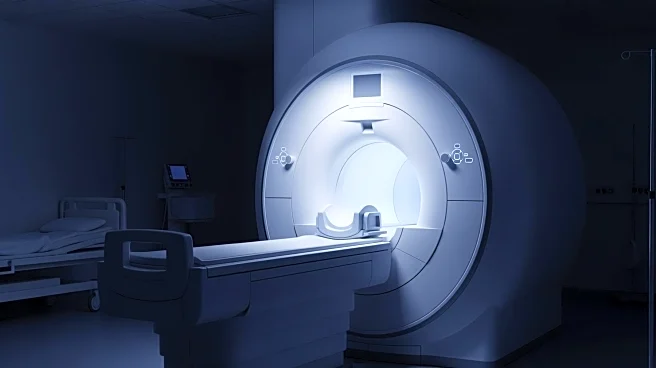What's Happening?
President Trump has confirmed that he underwent an MRI scan during his recent visit to Walter Reed National Military Medical Center. This marks the first time he has provided a reason for his second medical exam this year, raising new questions about
his health. Trump, who is one of the oldest presidents in U.S. history, did not specify the reason for the MRI, suggesting reporters ask the doctors. The White House had previously announced that Trump was diagnosed with chronic venous insufficiency, a condition causing swelling in the legs.
Why It's Important?
The health of President Trump is crucial given his age and the responsibilities of his office. His confirmation of the MRI scan could lead to increased scrutiny and speculation about his health status. The diagnosis of chronic venous insufficiency and the need for an MRI may concern stakeholders about his physical capability to lead effectively. Transparency regarding his health is vital for maintaining public trust and confidence in his leadership.
What's Next?
The White House may face calls for greater transparency regarding President Trump's health and the reasons for his medical visits. Political opponents and the media may continue to question his health, potentially impacting his political standing and public perception. The administration might need to address these concerns to reassure the public and maintain confidence in Trump's ability to govern.
Beyond the Headlines
The situation underscores the importance of transparency in the health of public officials, raising ethical considerations about privacy versus public interest. It may prompt discussions on how much health information should be disclosed for individuals in high office, balancing personal privacy with the public's right to know.
















